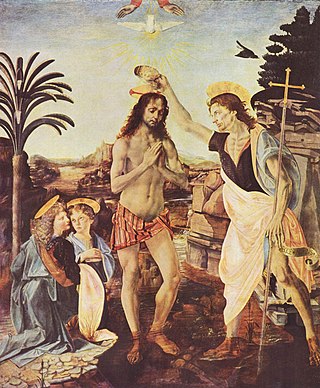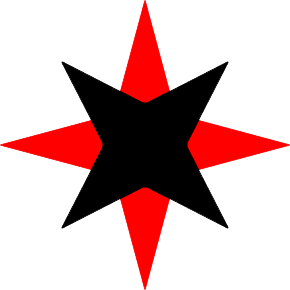Related Research Articles
The Roman Curia comprises the administrative institutions of the Holy See and the central body through which the affairs of the Roman Catholic Church are conducted. The Roman Curia is the institution which the Roman Pontiff ordinarily makes use of in the exercise of his supreme pastoral office and universal mission in the world. It is at the service of the Pope, successor of Peter, and of the Bishops, successors of the Apostles, according to the modalities that are proper to the nature of each one, fulfilling their function with an evangelical spirit, working for the good and at the service of communion, unity and edification of the Universal Church and attending to the demands of the world in which the Church is called to fulfill its mission.

Consensus decision-making or consensus process is a group decision-making process in which participants develop and decide on proposals with the goal of achieving broad acceptance, defined by its terms as form of consensus. The focus on establishing agreement of at least the majority or the supermajority and avoiding unproductive opinion differentiates consensus from unanimity, which requires all participants to support a decision. Consensus decision-making in a democracy is consensus democracy.
Jehovah's Witnesses are organized hierarchically, and are led by the Governing Body of Jehovah's Witnesses from the Watch Tower Society's headquarters in Warwick, New York. The Governing Body, along with other "helpers", are organized into six committees responsible for various administrative functions within the global Witness community, including publication, assembly programs and evangelizing activity.
The views of Quakers around the world towards homosexuality encompass a range from complete celebration and the practice of same-sex marriage, to the view that homosexuality is sinfully deviant and contrary to God's intentions for sexual expression. The Religious Society of Friends (Quakers) is a historically Christian religious movement founded in 17th-century England; it has around 350,000 members. In Britain, Canada, New Zealand and Australia, many Quakers are supportive of homosexual relationships, while views are divided among U.S. meetings. The majority (52%) of Quakers live in Africa, and though views may differ, the Kenyan Church of Friends does not support homosexual relationships.

Elias Hicks was a traveling Quaker minister from Long Island, New York. In his ministry he promoted unorthodox doctrines that led to controversy, which caused the second major schism within the Religious Society of Friends. Elias Hicks was the older cousin of the painter Edward Hicks.
The International Council of Community Churches (ICCC) is a Christian religious association of ecumenically co-operating Protestants and Independent Catholics. Based in Longmout, CO, in the United States, it is the main organization of the Community Church movement. The ICCC is a member of Churches Uniting in Christ, the National Council of Churches of Christ in the USA and the World Council of Churches. In 2010, the ICCC had 148 congregations with 68,300 members. Membership is concentrated primarily in the Midwest. However, there are several congregations in California, New York, and Florida. According to the World Council of Churches, the council has 108,806 members worldwide.

The blessing or wedding of same-sex marriages and same-sex unions is an issue about which leaders of Christian churches are in ongoing disagreement. Traditionally, Christianity teaches that homosexual acts are sinful and that holy matrimony can only exist between two persons of different sexes. These disagreements are primarily centred on the interpretation of various scripture passages related to homosexuality, sacred tradition, and in some churches on varying understandings of homosexuality in terms of psychology, genetics and other scientific data. While numerous church bodies have widely varying practices and teachings, individual Christians of every major tradition are involved in practical (orthopraxy) discussions about how to respond to the issue.
Quaker weddings are the traditional ceremony of marriage within the Religious Society of Friends. Quaker weddings are conducted in a similar fashion to regular Quaker meetings for worship, primarily in silence and without an officiant or a rigid program of events, and therefore differ greatly from traditional Western weddings.
The Religious Society of Friends began as a proto-evangelical Christian movement in England in the mid-17th century in Ulverston. Members are informally known as Quakers, as they were said "to tremble in the way of the Lord". The movement in its early days faced strong opposition and persecution, but it continued to expand across the British Isles and then in the Americas and Africa.
Within the Religious Society of Friends, a clerk is someone responsible for various administrative functions within a meeting for worship for church affairs or meeting for worship with attention to business. The clerk is responsible for recording the discernment which is arrived at during such a meeting, in a minute, and is responsible for sending and receiving correspondence on behalf of the meeting. Within some branches of the Religious Society of Friends, the clerk may also create an agenda and may facilitate the meeting.

Quakers are people who belong to the Religious Society of Friends, a historically Protestant Christian set of denominations. Members of these movements are generally united by a belief in each human's ability to experience the light within or "answering that of God in every one". Some profess a priesthood of all believers inspired by the First Epistle of Peter. They include those with evangelical, holiness, liberal, and traditional Quaker understandings of Christianity. There are also Nontheist Quakers, whose spiritual practice does not rely on the existence of God. To differing extents, the Friends avoid creeds and hierarchical structures. In 2017, there were an estimated 377,557 adult Quakers, 49% of them in Africa.
The Quaker movement began in England in the 17th Century. Small Quaker groups were planted in various places across Europe during this early period. Quakers in Europe outside Britain and Ireland are not very numerous (2023) although new groups have started in the former Soviet Union and successor countries. By far the largest national grouping of Quakers in Europe is in Britain.
Pastoral care refers to emotional, social and spiritual support. The term is considered inclusive of distinctly non-religious forms of support, as well as support for people from religious communities. It is also an important form of support found in many spiritual and religious traditions.
A Book of Discipline may refer to one of the various books issued by a Yearly Meeting of the Religious Society of Friends, setting out what it means to be a Quaker in that Yearly Meeting. The common name for this book varies from one Yearly Meeting to another and includes Book of Discipline, Faith and Practice, Christian Faith and Practice, Quaker Faith and Practice, Church Government and Handbook of Practice and Procedure. Each Book of Discipline is updated periodically by each Yearly Meeting according to the usual practice of decision making within the Religious Society of Friends.

The Movement of the Word of God, also called Work of God the Father, is a pastoral community of disciples, a lay ecclesial movement within the Roman Catholic Church.
The clergy of the United Church of Canada are called "ministers". There are two "streams", ordered ministry and lay ministry. Ordered ministry includes ordained ministers and diaconal ministers. Lay ministry refers to licensed lay worship leaders (LLWL), designated lay ministers (DLM), sacraments elders, and congregational designated ministers (CDM). There are no restrictions on gender, sexual orientation, age, or marital status for any branches of ministry.

The Canadian Friends Service Committee (CFSC) is a charity that acts on the peace and social justice concerns of the Religious Society of Friends (Quakers) in Canada.

The Quakers have had a presence in Canada since 1670, when Charles Bayly was sent to be the governor of the Hudson's Bay Company. Early Quaker settlements were attempted in New Brunswick, Nova Scotia, Prince Edward Island and at Farnham in Quebec in the late 1700s. Permanent communities were realised at Adolphustown on the Bay of Quinte and at the same time at Pelham in the Niagara District before 1800. Quakers immigrated to Canada from New York, the New England States, and Pennsylvania.
Amoris laetitia is a post-synodal apostolic exhortation by Pope Francis addressing the pastoral care of families. Dated 19 March 2016, it was released on 8 April 2016. It follows the Synods on the Family held in 2014 and 2015.

The Quaker business method or Quaker decision-making is a form of group decision-making and discernment, as well as of direct democracy, used by Quakers, or 'members of the Religious Society of Friends', to organise their religious affairs. It is primarily carried out in meetings for worship for business, which are regular gatherings where minutes are drafted, to record collective decisions.
References
- ↑ "Movement for a New Society Records, 1971-1988". Swarthmore College Library.